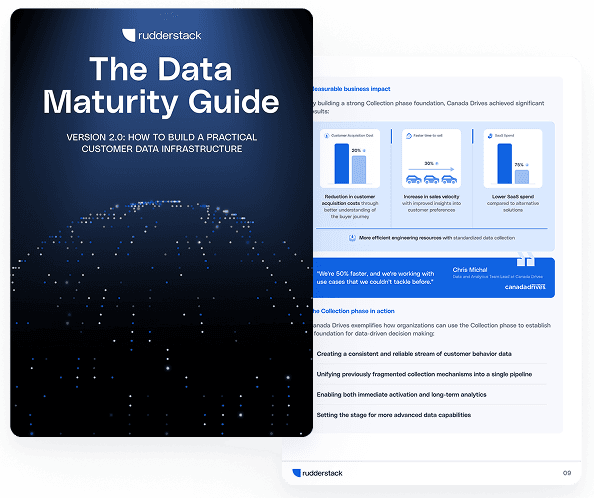Blog
Introducing New Functionality to RudderStack Transformations: API, Library, and Debugger
Introducing New Functionality to RudderStack Transformations: API, Library, and Debugger

Savia Lobo
Content Writer
4 min read
April 13, 2021

Transformations are one of the most powerful and loved features of RudderStack. They let you transform any data that you send through RudderStack and you can use them across Event Stream, Reverse ETL, and ETL pipelines. They are easy to build, debug, and manage; and they run in real-time, after data collection and before delivery to a destination. They’re data transformations that work like you think they should.
Today, we’re making Transformations even better and easier to use. We exposed the Transformations API so you can programmatically create and manage your transformations. We added the Transformations Library, modular blocks of transformation code that can be saved and reused as part of other transformations, just like libraries in software programming. We also added a transformation debugger so you can validate that your transformations will run before saving and applying them to your pipelines.
Transformations API
Previously, our users could only deploy transformations from within the RudderStack Control Plane (aka our UI). To make Transformations easier to create and manage, we’ve launched the RudderStack Transformations API.
The Transformations API enables you to perform multiple operations - create, read, update and delete - on your transformations and transformation libraries programmatically via simple HTTP API calls. It also allows you to publish multiple transformations/libraries in a single operation - a functionality that is not yet available on the RudderStack UI.
Learn more about the Transformations API in our post, RudderStack’s Transformations API.
Transformations Library
Currently, transformations are reusable. Only one transformation can be applied to a pipeline destination though. So if you need to reuse two transformations on a pipeline, you can’t. To solve this problem and to make Transformations more powerful and flexible overall, we’ve launched the Transformations Library.
The Transformations Library lets you save blocks of transformation code to your organization’s library.

Transformations Library
You can reuse them as part of other transformations, just like libraries in software programming.

Libraries make Transformations modular, and make code reuse and debugging much easier.
Debugger
Currently, if you have a code error in a transformation, it isn’t easy to identify. Debugging why a transformation won’t run requires more work than it should. To solve this problem and make it easier to build transformations in the RudderStack Control Plane, we’ve launched a transformation debugger.

Debugger
Transformations let you go Further with your Event Data
Transformations can help you programmatically add, remove, and/or change data in your pipelines before it’s delivered to a destination. It helps you easily implement transformations for common yet powerful logic.
Aggregation
Aggregations collect data from multiple sources and stores it in a single format to perform statistical analysis. Aggregated data makes it easier to understand customer interactions or analyze marketing campaigns and improvise your marketing strategies.
PII Masking
Organizations often avoid sending PII data to downstream tools as it may lead to security challenges. However, PII may escape due to unexpected development errors. Transformation can help capture and mask sensitive data.
Hunting Down the Nulls
Change in event schemas, manual errors, or decommissioned fields cause data errors. Developers need the ability to detect data anomalies and react on them closely from the backend. This saves data engineers valuable time in fixing a broken data pipeline. With RudderStack Transformations, you can detect common errors such as null values and correct them early on the data pipeline.
Sign up for Free and Start Sending Data
Test out our event stream, ELT, and reverse-ETL pipelines. Use our HTTP source to send data in less than 5 minutes, or install one of our 12 SDKs in your website or app. Get started.
Published:
April 13, 2021
More blog posts
Explore all blog posts
Data without compromise: The RudderStack story
Danika Rockett
by Danika Rockett

Snowflake Summit 2025 recap: Launches, live demos, and real-time data
Ricky Spiese
by Ricky Spiese

Introducing Rudder AI Reviewer: Catch bad tracking before it ships
Dileep Patchigolla
by Dileep Patchigolla


Start delivering business value faster
Implement RudderStack and start driving measurable business results in less than 90 days.


